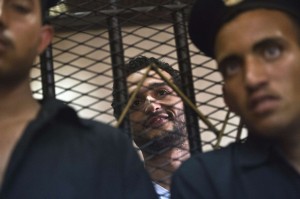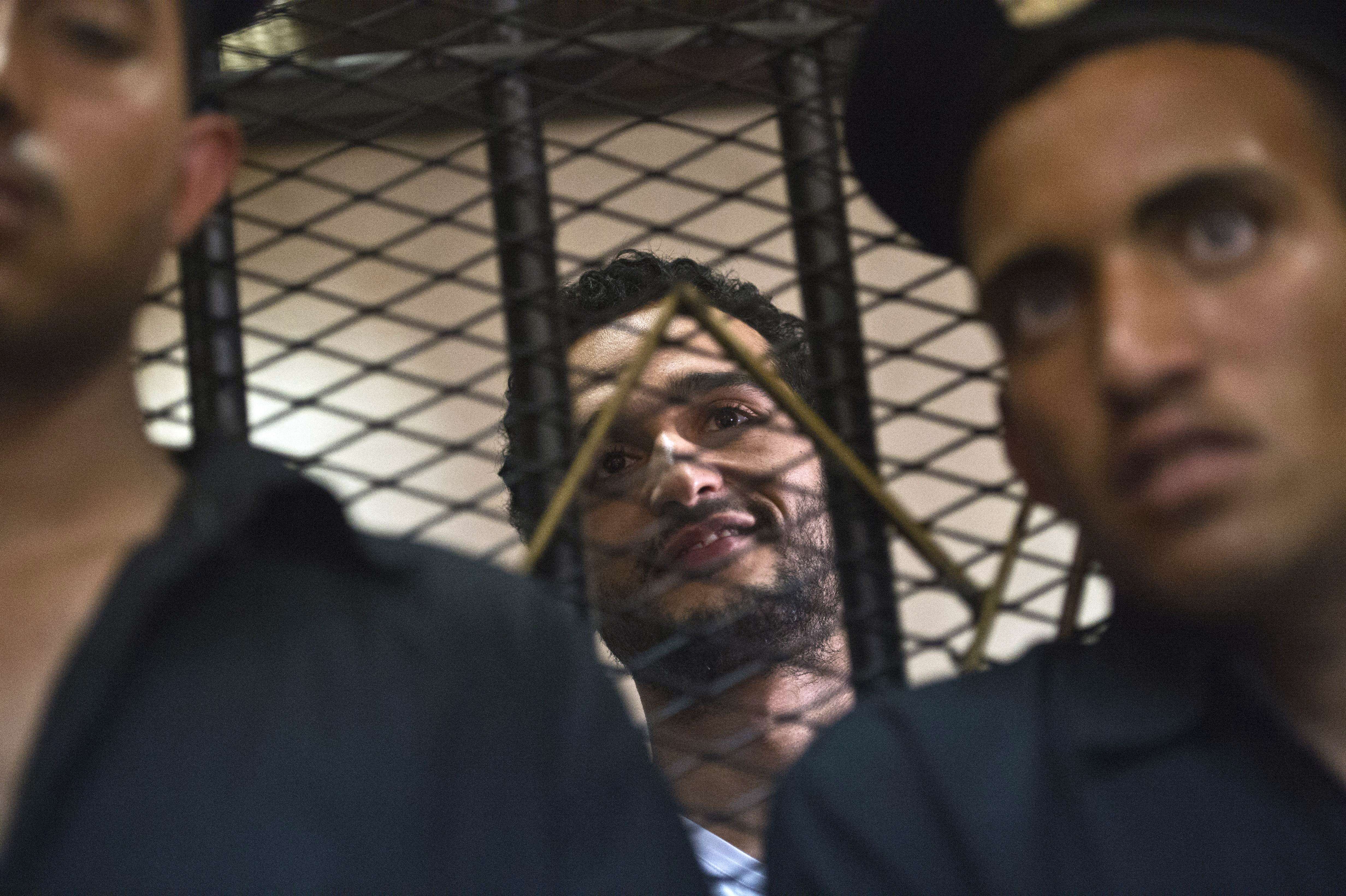
Egypt “censurably” followed the reactions of countries, governmental and non-governmental regional and international organisations on the life sentences handed down to 230 defendants in the cabinet clashes trial.
The foreign ministry condemned the “unacceptable interference in the Egyptian judiciary and lack of respect for its provisions”.
The reactions are a “serious breach of the fundamental principles of any democratic system, particularly the principle of powers separation”, said a Friday ministry statement.
The European Union, Freedom House, and local rights organisations condemned the life sentence handed to activist Ahmed Douma and 229 other defendants on Wednesday. They were fined in total EGP 17m. Also, 39 minors received 10-year prison sentences.
“The reactions also reflect a great deal of double standards and selectivity under international suspicious silence about the countries that brag about democracy, yet continue to detain people for many years without trial, without allowing them to defend themselves and without even stating the charges against them,” the statement added.
The State Information Service (SIS) emphasised that the defendants are being tried before an “ordinary” court and in front of a “normal judge”. The SIS added that they have a right to appeal, which their defence lawyer said they will do.
Judge Nagy Shehata, who was behind this most recent mass sentence, has become known among activist circles for his harsh sentences, and is widely regarded as anti-revolutionary.
The ministry statement however put emphasis on the independence of the Egyptian judiciary.
The December 2011 cabinet clashes occurred after demonstrators organised a sit-in at the cabinet headquarters, protesting the appointment of Kamal El-Ganzoury as prime minister by the Supreme Council of Armed Forces (SCAF). Military forces attempted to disperse the sit-in, resulting in deadly violence, which lasted for four days.
All defendants are facing charges of attacking the cabinet building and security personnel, as well as burning the Scientific Institute in Cairo in 2011, illegal assembly, and possession of melee weapons and Molotov.


